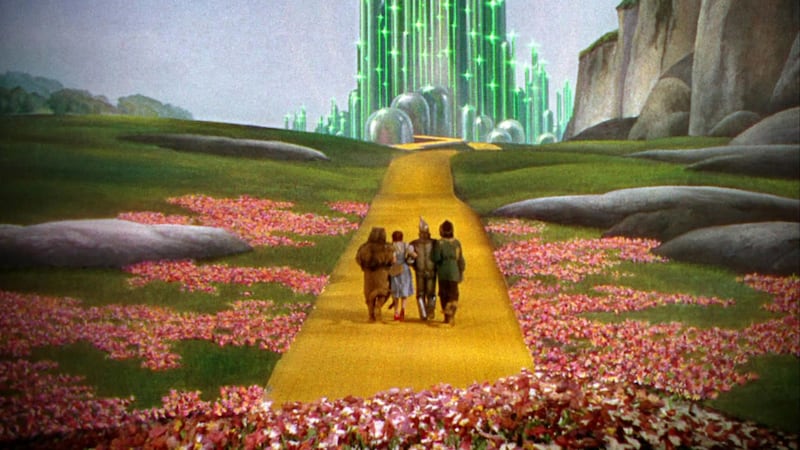We can expect the next few weeks to become increasingly fraught as the deadline for a Brexit deal looms and Leave supporters in the Tory party press for a tougher stance from the British government.
It is clear the gloves are off as far as Theresa May and her arch rival Boris Johnson are concerned.
Mr Johnson, freed from the constraints of collective responsibility, has been airing his hard-Brexit credentials in his weekly Daily Telegraph column, a platform that allows him the opportunity to take regular pot shots at the prime minister using colourful and at times distasteful language.
The former foreign secretary, of course, is loving the attention and he will have chosen his words for maximum impact.
Yesterday he railed against the backstop option for the Irish border, which he argued is an attempt by the EU to annex Northern Ireland.
In his view, the Chequers plan means the UK is 'heading full throttle for the ditch with a total write-off of Brexit.'
Number 10 was quick to slap down Mr Johnson, pointing out that he was part of the cabinet that agreed to the backstop and even congratulated the prime minister on securing the deal.
Mrs May will be mindful of Mr Johnson's leadership ambitions as she attempts to close the Brexit deal but it is essential the backstop remains in place as pressure grows ahead of the withdrawal date.
Reports yesterday suggested the EU was preparing to redraft the backstop document to make it more acceptable to the British government.
It is believed proposed changes include allowing British inspectors to carry out checks in UK ports, without EU inspectors, to ensure customs rules are followed.
Technology has been discussed as a possible solution at British ports but there remains the question of arrangements for the land border between the north and south of Ireland.
Meanwhile, the head of the Northern Ireland Civil Service has warned of the risks associated with a no-deal Brexit and a 'chaotic' withdrawal from the EU.
He said if World Trade Organisations tariffs are applied, this would have 'negative consequences for our economy.'
As well as trade barriers, Mr Sterling said regulatory divergence would cause difficulties for business and stressed that the significant flow of goods from east-west and north-south must not be put at risk.
It is important to listen to the concerns of businesses that will still have to move goods around and keep trading whatever happens in the Brexit negotiations.
These firms certainly have a better understanding of the dangers of a no deal, or a border that has some form of customs checks, than the politicians who simply want to leave the EU and are not overly concerned about the consequences.







